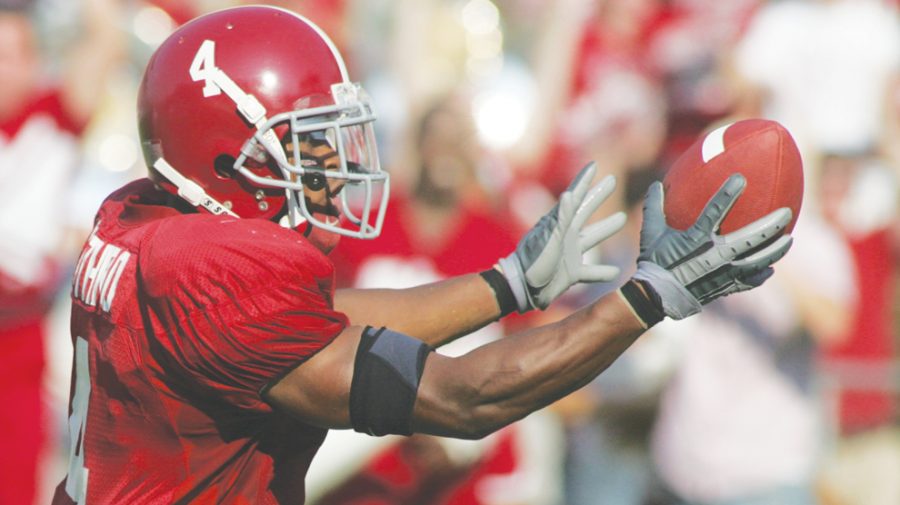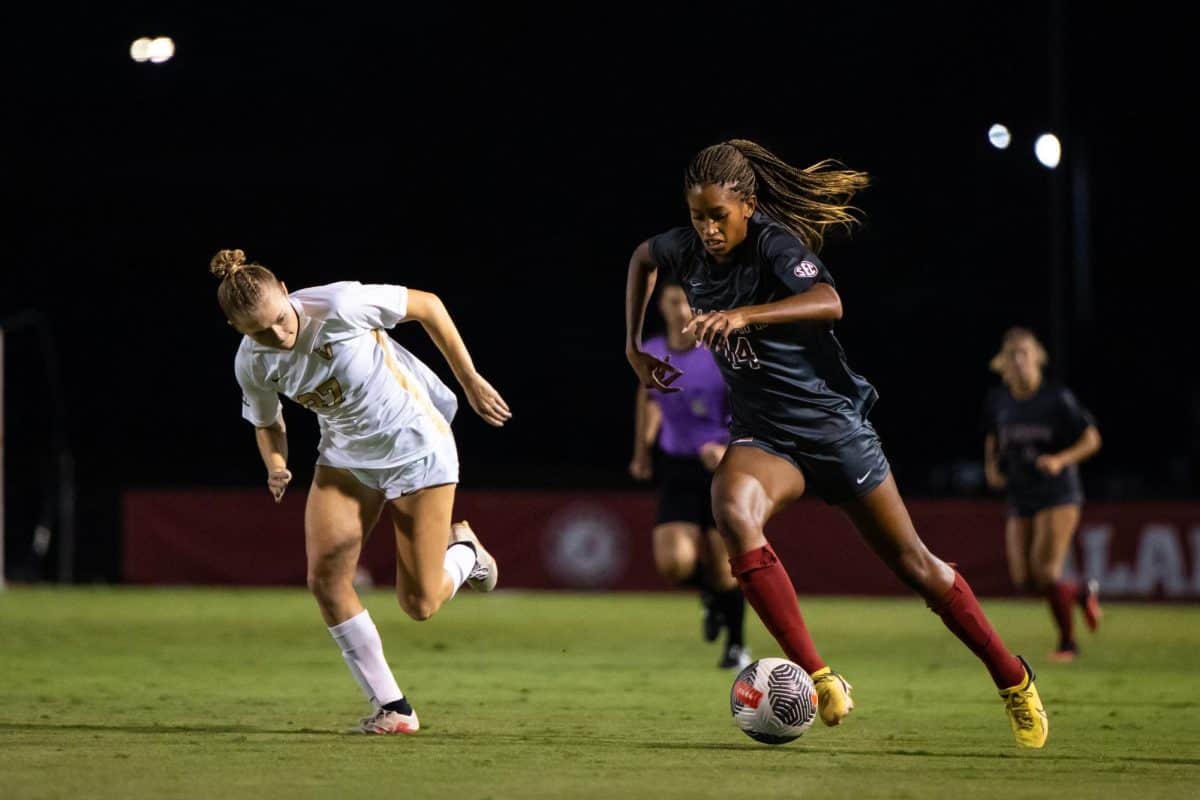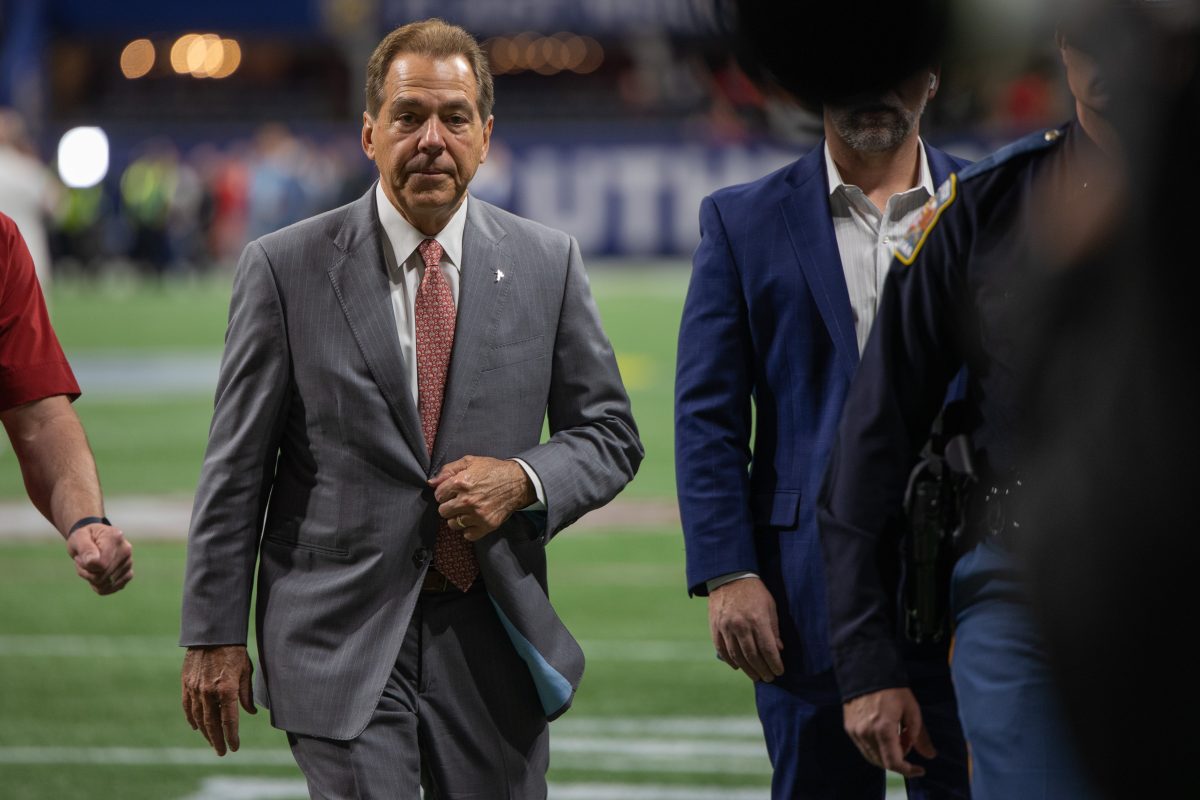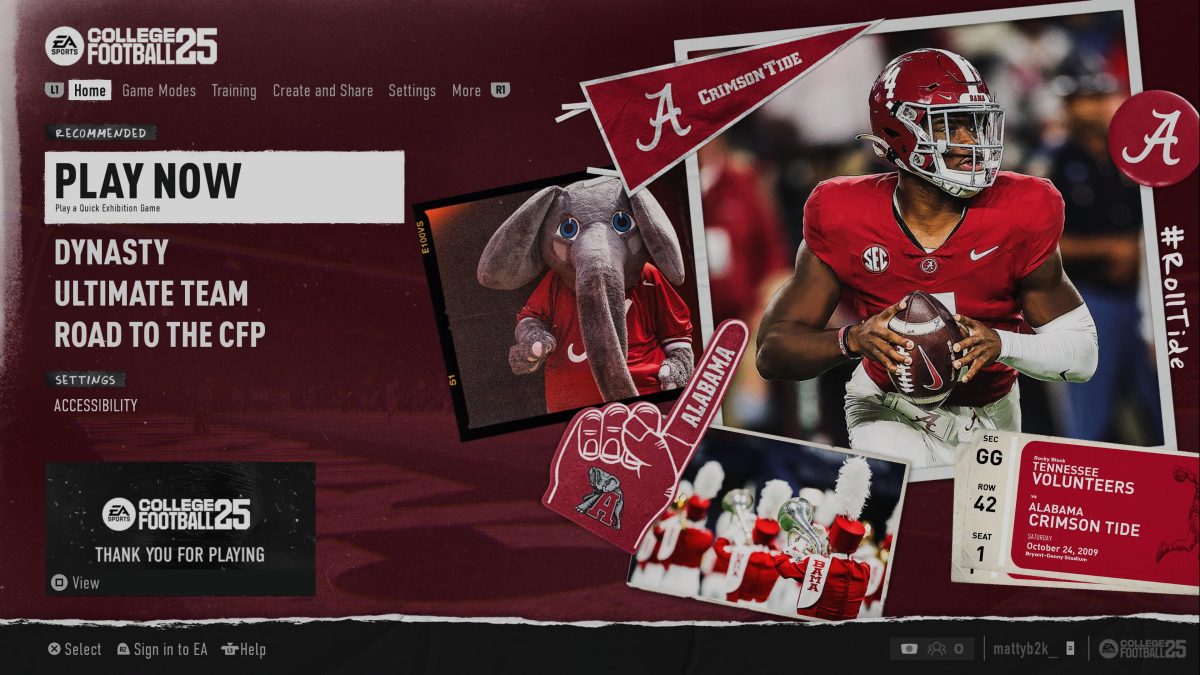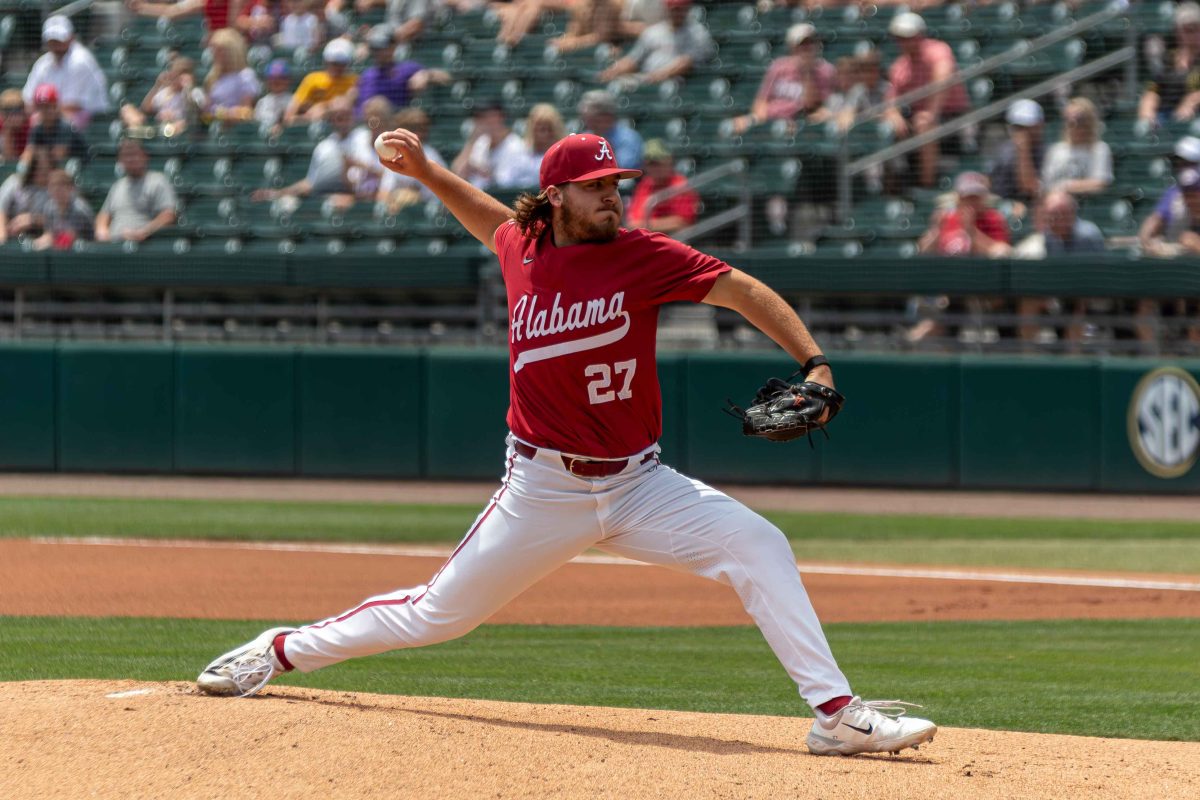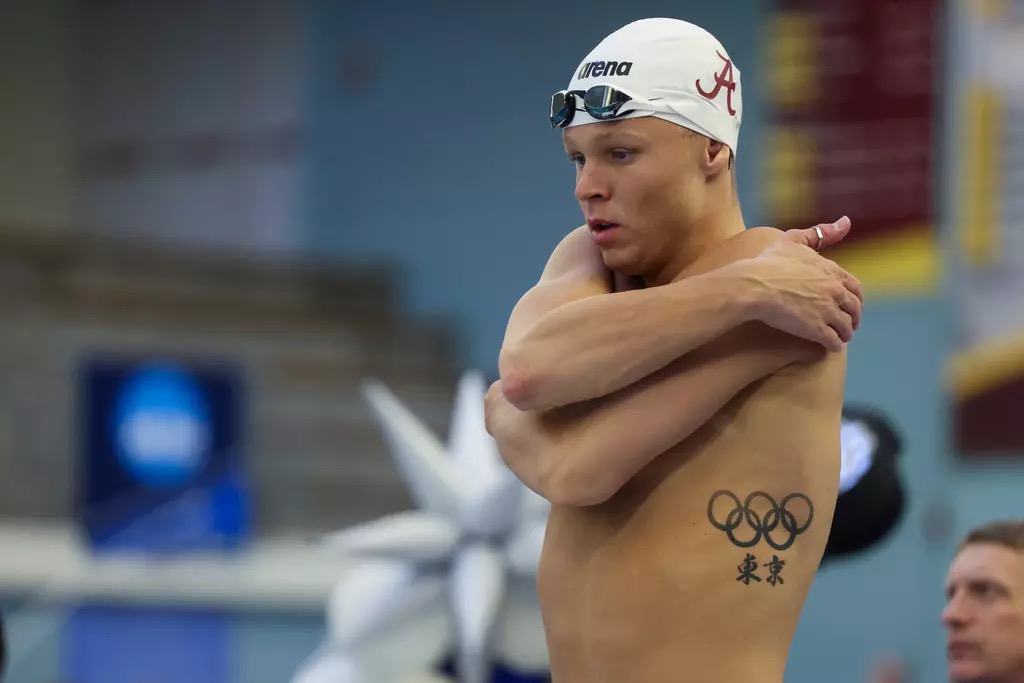There comes a point in every athlete’s career when they know they are at the end.
Tyrone Prothro is not there yet.
For every year he’s had to create himself in the Madden video game series, and for every weekend in the fall he’s spent off the clock, he’s had even more time to dream about a once-promising future that now hardly seems possible.
“I would give anything to be able to step back on the field and score just one more touchdown,” he said. “That would make my life.”
It has been five years to the day since a broken leg prevented the former Alabama wide receiver from holding onto his third touchdown catch against fifth-ranked Florida. As the Gators return to Tuscaloosa for the first time since the injury this weekend, Prothro still holds hope that the famous play was not his last.
“It was never told to me that I would never be able to play again,” he said. “I’m not going to ever say I’m not going to play. I still believe that one day I will be able to step foot back on the football field and woo the crowd like I used to.”
The injury
Prothro was having the game of his life, and Alabama was putting together perhaps its most dominant performance since the Bear Bryant era.
With a 28-point lead and nine minutes remaining in that 2005 game, the Crimson Tide wanted to take one more shot on a fourth-and-5 from the Florida 27-yard line. Alabama wanted one more statement against the No. 5 team in the country in a game some thought could be the first step towards bringing the program back to prominence.
“It was all the starters’ last play,” said Prothro, who had 134 receiving yards and two touchdowns in the game. “The DBs were playing aggressive, so we called a hitch-and-go. I had him beat by at least five yards.”
But an underthrown ball allowed Florida cornerback Dee Webb to catch up and bump Prothro while he was in the air. After an awkward landing, a Bryant-Denny crowd that had been erupting all game was suddenly in a silent shock.
“I felt like people just started praying for him,” said Vivian Prothro, Tyrone’s mother, who was in the stands along with three other family members. “I was amazed at how much these people loved my son.”
Although it certainly didn’t look good, nobody knew at the time that Prothro had broken the tibia and fibula in his left leg, an injury that would end his Alabama career.
“When it first happened, we were just praying that he hurt his ankle or something,” former Alabama fullback LeRon McClain said. “We didn’t know it was to the extreme like that.”
Even Prothro had no idea how serious it was. As a cart carried him off the playing field for the final time, the Tide’s most electric player lifted his hands. He motioned the crowd to break its silence, allowing everybody, including himself, to believe that everything was going to be OK.
The rehab
Prothro’s next 26 days were spent undergoing surgeries, lying in hospital beds and watching a once-potent Alabama offense go flat.
In Alabama’s five games with Prothro in 2005, the Tide scored at least three touchdowns. In the next two games combined without the star, Alabama scored just one. By the end of the season, the Tide averaged 13.2 points per game more with Prothro than without him.
“He was frustrated a lot watching,” said Quintin Prothro, Tyrone’s older brother. “As a player, he looked at it like, ‘You know, I wasn’t that big of a difference.’ But in the hospital bed watching [the Ole Miss game], he was like, ‘Man, they’ve got to be able to move the ball.’”
The frustration was not confined to watching football on Saturdays, however. Every surgery performed on his leg was just another sign of the magnitude of the injury.
“The first time he cried, I jumped up and I just grabbed him,” Vivian Prothro said. “I just told him to let it all out. I was hurting, too, but I couldn’t let him see. I had to be strong for him. Whenever they took him down to his surgeries and stuff, that’s when I got my tears out.”
Vivian, who had traveled to Tuscaloosa for the game, stayed with her son the entire 26 days in the hospital and became what Tyrone called his main supporter.
He said he also received about three large boxes of fan mail per day while he was in the hospital, and teammates and coaches would visit him every day after practice.
“It gave us extra motivation, going and seeing him in the hospital,” said former teammate Matt Caddell. “Here’s a guy who gave it all on every play, every practice, every down. That made you be grateful for the opportunity that you have to go out there and play.”
To say Prothro’s recovery was slow would be quite the understatement. He went through rehab for more than two years at the Tide’s facilities and even continued to sit in meetings and film sessions with the team through the 2008 season.
“You hear guys complain about how hot practice is and how hard practice is,” Prothro said, “but you never realize how much you missed it until you’re in my situation. Just seeing them go out there and practice and be able to put on pads, it got to me.”
It got to the point where even the slightest progression was encouraging.
“Just to see him jog,” Caddell said, “it was probably almost a year down the road, but just to see him make those strides, it was so gratifying for us.”
But Prothro could never get his leg back into playing shape. He took his initial redshirt season in 2006 and a medical redshirt year in 2007. His last chance at playing for Alabama came in 2008. When the realization set in that he still had no chance of playing his senior season, he gave up his athletic scholarship.
“[It’s tough] for an athlete to have to go through that stage of not wanting to give it up and knowing you’ve still got a lot left in you,” Prothro said. “And for me, I had a full career ahead of me.”
McClain said, “He’s still one of my favorite players I’ve ever seen play college football. He put on a show for many fans on many Saturdays at Bryant-Denny. I just wish I would have had a chance to see him play [in the NFL]. I wish I could see that right now.”
The future
Prothro now works at Regions Bank on Paul Bryant Drive in Tuscaloosa, in the shadow of Alabama’s practice facility and an easy walk from the stadium where he played his last game five years ago.
He was a coach for the Birmingham Wildfire of the LaBelle Community Football League during the summer of 2009, but said he wants to see where banking can take him while he waits for another coaching opportunity to open up.
Although he has shown interest in coaching, Prothro’s true desire is to play football again.
“There’s not a day I can watch Alabama football and not wish I was still out there,” he said. “There’s not a day I can watch NFL football and not think I should be out there somewhere.
“Whether it’s me playing, or just thinking about the team or thinking about my favorite NFL team – every day I think about it.”
He still sees a comeback as a possibility. He said it could be “a couple more years down the road,” and that he would need one more surgery to possibly eliminate setbacks he’s had in the past.
“I do think I can be as effective as I used to,” he said. “I may not be as fast, and I may not be as quick, but I still have that same mentality and that same heart that I had when I played.
“Whether it’s NFL, whether it’s European league, or whether it’s Canadian league, arena football, Arena2, I still feel like one day I’m going to be able to come back and be entertaining like I used to.”
Prothro plans on attending the Florida game Saturday, saying it would bring back many more good memories than the one bad. He will remember more vividly his 87-yard touchdown catch in the first quarter, his early third-quarter score that put the Tide up 31-3 and even his punt return touchdown that was called back because of a penalty more than he will remember the play that ended his career.
“[At the time of the injury], I did catch myself wondering, ‘Why have me up so high in a game, and then bring me down so low in the same game?’” he said. “But, it’s one of those things where you can’t question God’s authority. As much as I love football, you can’t sit back and question.
“It could have happened to anybody. It just happened to me.”

